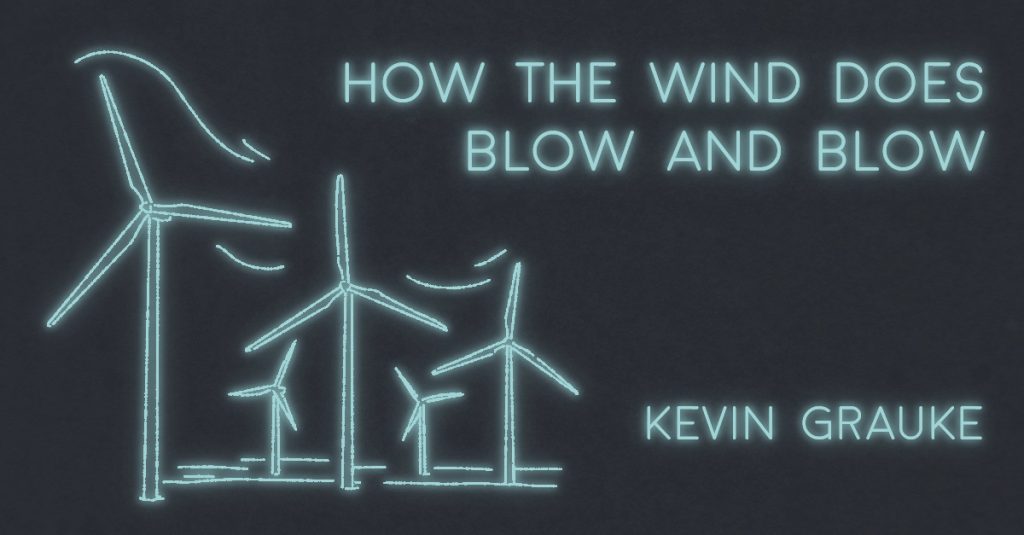If you’re smart, don’t ever let Claudette Aarons catch you reading anything, not even a magazine, because if she does, she’ll for sure say, “You know what you should be reading instead of that, don’t you? You should be reading Dorothy Scarborough’s The Wind.”
Don’t ask her how come, because she’ll tell you how come for an hour. And don’t lie and say you’ve already read it, because then she’ll expect you to discuss it forevermore. And don’t ignore her, either, because she’ll just take that the same as if you’d asked her how come. Your best bet is to simply cross the street as soon as you see her coming.
Nobody in town, not even Claudette’s own daughter, has ever bothered to read it—mostly out of pure orneriness, probably. Regardless, everyone still knows its story backwards and forwards, since that’s all she’ll fill your ear with whenever the wind happens to kick up, which is pretty much every day that ends with a ‘y.’ Yes, the wind does blow and blow here in Yonder, and it blows because there’s not a goddamn thing big enough to ever slow it down—not any buildings taller than a telephone pole, not any trees that qualify to be called as such, not anything. It’s good for the windmills drawing up water from the aquifer for the stock tanks, and it’s good for the wind farms that’ve turned the land north of 20 into some strange Martian landscape, but it’s not good for much else. In the summer, it huffs and puffs oven-hot up from Mexico (or Old Mexico, as Boyd Pinkston, who probably remembers Pancho Villa, still calls it), and in the winter it screams icebox-cold down from the North Pole. No matter the season, by the end of the day your skin is liable to feel rasped raw. And at night, while you’re waiting for sleep and dreams to come, it just keeps on whistling its lonesome blues beneath your door until the sun finally comes up, usually to roast you alive before you’ve poured your second cup of coffee.
As bad as the wind can be, though, it’s never as bad as Claudette’s favorite book would have you believe. Written in 1925 and set in the 1880s, it tells the story of a young woman named Letty, who was forced to move from the green fields of Virginia to a ranch just west of Sweetwater.
“Can you believe that?” Claudette says, all bug-eyed. “Of all the places that Dorothy Scarborough could’ve moved Letty to! Just west of Sweetwater! Letty even mentions Yonder a few times!”
Some folks say that Claudette’s been like this—just as crazy as a bullbat when it comes to the wind—ever since she was a little girl. Other folks say it’s only been since a tornado south of Archer City flung her fiancé’s truck into a Dairy Queen like so much trash. But even that was a long time ago.
“They made a silent movie based on it, you know,” Claudette will continue. “It was one of the last MGM made. Lillian Gish played Letty. Can you believe that? Lillian Gish!” Everybody except maybe Boyd Pinkston has to pretend to understand why this is a big deal. “They filmed it in the Mojave Desert, though, not here,” Claudette grumbles. “Those Hollywood pinkos couldn’t handle the real thing.”
Letty is eventually driven so insane by the wind, Claudette explains, that she kills a man and then commits suicide by running straight into a dust storm.
“What’d she do, suffocate?” asked Vance Wickersham once. “That seems like a bit of a stretch, don’t you think? She’d’ve really had to work at doing that, seems like. There’s lots easier ways.”
“But it makes sense how that other part could happen,” Claudette shot back. “The killing part, I mean. Because, I swear, sometimes the wind just makes you want to mow everyone down with both barrels.”
Though most folks smile and nod their heads when she talks like this, nobody knows what the hell she means exactly. Sure, when the wind makes the traffic light down on the square rock and creak on its wire late at night, it does have a way of making you feel like a lost and lonely soul, especially if it’s long after everybody else has gone home to bed and you’re standing there all by yourself, but that’s nothing that a few beers can’t usually fix. Regardless, everyone with a lick of sense knows to steer clear of Claudette whenever a dust storm or a blue norther is fixing to howl and churn into town, because it’s a known fact that, thanks to her Daddy, who raised her like a boy since he was cursed with five daughters and no sons, she may be even more of a deadeye shot than Zell Wylie, and that’s saying something. Zell, after all, once shattered a bottle of Pearl with a shot fired from two hundred yards. Kid Gillespie hadn’t even been expecting it. He’d just happened to been drinking in the gravel lot of the domino parlor when Zell decided to take aim at it for no particular reason. Had Claudette been there, she probably would’ve taken the shot from fifty yards further away, seeing as how she’s never been one to shy away from a challenge—and plugged it, too—just as long as Kid held his hand steady, but now he’s got Parkinson’s tremors so bad that he can’t even play 42 anymore, not without scattering dominoes every which way. These days, all he does is stand around and watch, usually with his hands pushed deep into the pockets of his jeans to keep them flapping about like broken-winged doves.

